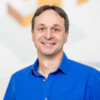ASKI – The autarkic Ski
The scientifi c aim of the project is to develop an innovative integrated framework and tool for modelling the energy and communication processes in networked embedded systems.
Today‘s modelling approaches and tools are based on a combination of discrete modelling of the communication processes and an underlying model describing the energy consumption. The modelling and simulation of the energy processes in sinks (sensors, actuators, physical communication) and sources (generator, battery) are realised by means of continuous models.
This two-paradigm approach has its disadvantages:
- Handling two modelling approaches and isolated tools is diffi cult for the researchers/engineers and increases the duration of the development cycle.
- Interfaces between different modelling approaches/tools have a potential for misinterpretation by the experts of their respective domain.
To overcome these drawbacks we propose to model the data communication process by following a new approach that we recently investigated in a European IST project. There, data traffi c is modelled as a continuous (in time and value) fluid process. We plan to bring this paradigm into the modelling domain of networked embedded systems. Using the fl uid abstraction, which was successfully employed in large scale IP networks, will open the way to a unifi ed continuous modelling framework.
This framework will accommodate the energy and communication models that will be developed within the project. In a second stage the models will be validated and integrated into a complex system. As a proof of concept this new integrated modelling approach will be employed for the design and the development of a prototype.
The main technical challenge of the project is to optimise data communication, sensor data generation and storage of relevant data in the prototype. This includes an autonomous power supply which makes use of the forces, temperatures or other physical phenomena that occur during use of such devices. State of the art sensor technologies, power sources and communication systems will be investigated, their process models will be derived / measured and integrated into the continuous unifi ed modelling framework. Measurement data of field trials will be used for the validation of the scientifi c and technical approaches.




